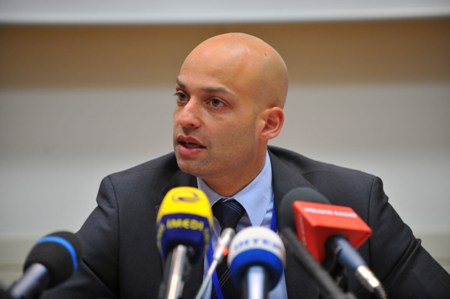NATO envoy explains impact of regional conflict on Georgia

NATO’s representative for the Caucasus and Central Asia region has explained a part of the Wales Summit Declaration relating to conflict in the region.
On his Facebook page, NATO Secretary General's Special Representative for the Caucasus and Central Asia region James Appathurai said the continuation of extended conflicts undermined the opportunities for citizens in the region to reach their full potential as members of the Euro-Atlantic community.
"The text refers deliberately to"citizens" - to the opportunities for individuals to travel, trade and prosper in freedom. It does not, again deliberately, refer to "states" because NATO does not accept that any third party can stop the enlargement process by creating or freezing a conflict," Appathurai wrote.
The 31st Article of the Wales Summit Declaration, issued to Georgia on September 5, 2014 read: "We will continue to support efforts towards a peaceful settlement of the conflicts in the south Caucasus, as well as in the Republic of Moldova, based upon these principles and the norms of international law, the UN Charter, and the Helsinki Final Act. The persistence of these protracted conflicts continues to be a matter of particular concern, undermining the opportunities for citizens in the region to reach their full potential as members of the Euro-Atlantic community. We urge all parties to engage constructively and with reinforced political will in peaceful conflict resolution, within the established negotiation frameworks."
The section in the Declaration related to conflict was understood by Georgia’s opposition party United National Movement (UNM) as if a "solution to the conflicts was a preposition for aspirant countries to become members".
"This is the fail of the Georgian diplomacy," Giorgi Kandelaki of UNM said. He said NATO's position was "opposite" before and the Alliance had now declared that conflict resolution could not be considered as a preposition for becoming a NATO member country.
However Appathurai confirmed NATO aspirant countries would be assessed on their reforms, their readiness and NATO's readiness. It was "plain and simple," he said.
 Tweet
Tweet  Share
Share